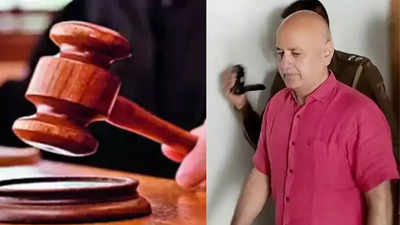
The case centers on allegations of corruption and irregularities related to the Delhi government's excise policy, which was introduced in 2021. The policy aimed to reform the liquor distribution system, but it has been criticized for potential legal breaches and misuse of power. The investigation, which began in 2022, has drawn significant attention due to its high-profile nature and the involvement of prominent political figures.
The extension granted to the CBI comes as a significant development in the case, reflecting the ongoing complexity of legal proceedings in high-stakes political cases. The CBI had earlier filed an application seeking additional time to gather the necessary sanctions, citing the complexity of the case and the need for thorough scrutiny. The court's approval of this request underscores the procedural challenges involved in prosecuting high-level officials.
Kejriwal, who has consistently denied any wrongdoing, has claimed that the charges are politically motivated. He argues that the excise policy was intended to improve revenue collection and ensure transparency in liquor distribution, and that the legal challenges are an attempt to undermine his administration. Durgesh Pathak, another key figure in the case, has similarly dismissed the allegations as baseless.
The excise policy itself has been a point of contention since its introduction. Critics argue that it favored certain businesses and led to potential losses in state revenue. The Delhi government's response to these allegations has been to emphasize the policy's intended benefits, including better regulation and increased revenue from the liquor trade. The ongoing investigation seeks to determine whether any illegal activities or violations of law occurred during the implementation of the policy.
The CBI's investigation has faced several hurdles, including the need for extensive evidence collection and legal approvals. The extension granted by the Delhi High Court provides the agency with additional time to navigate these challenges and gather the necessary documentation to proceed with the prosecution.
This case is part of a broader trend of legal and political challenges faced by various leaders and officials in India, reflecting the increasing scrutiny of public administration and governance. The outcomes of such cases often have significant implications for political dynamics and public trust in government institutions.
As the CBI works to meet the court-mandated deadline, the focus remains on the legal process and its potential impact on the Delhi administration and its key figures. The case continues to evolve, with the potential for further developments in the coming weeks.
